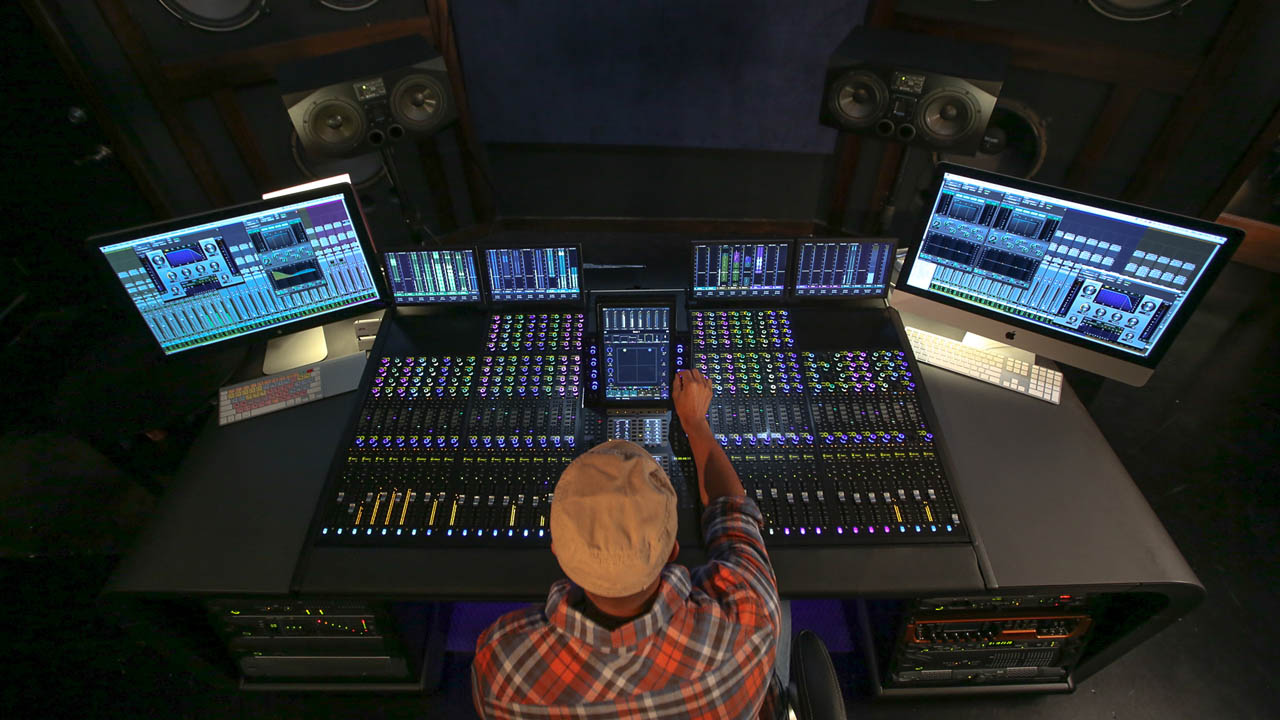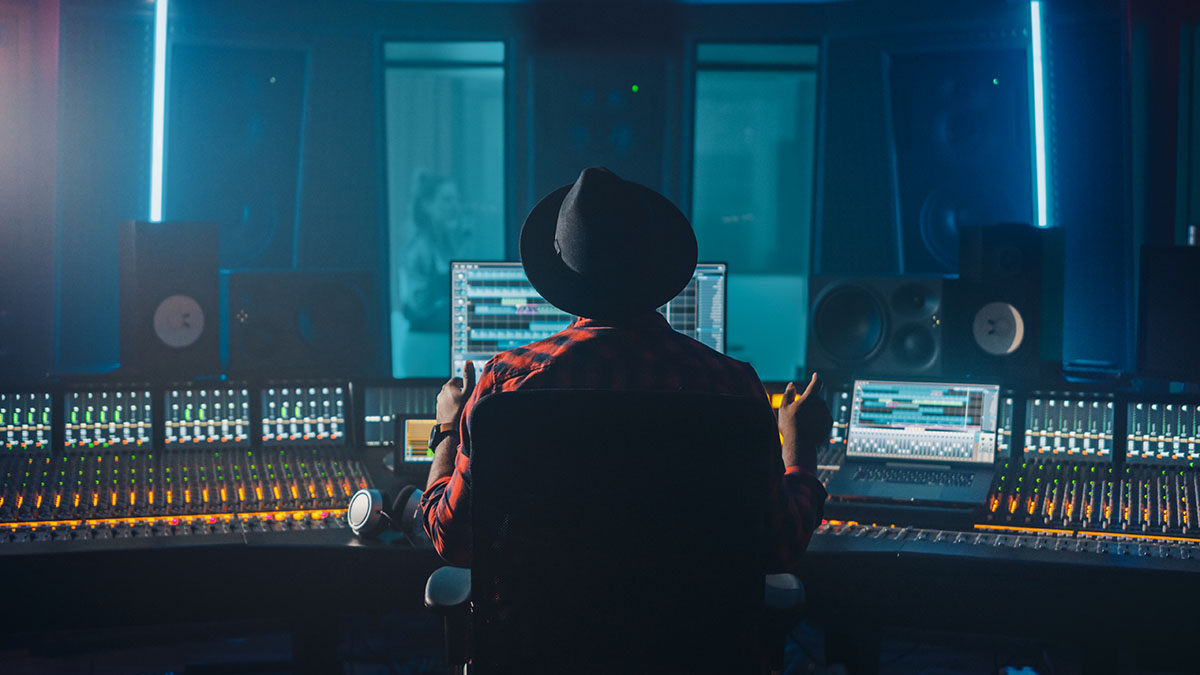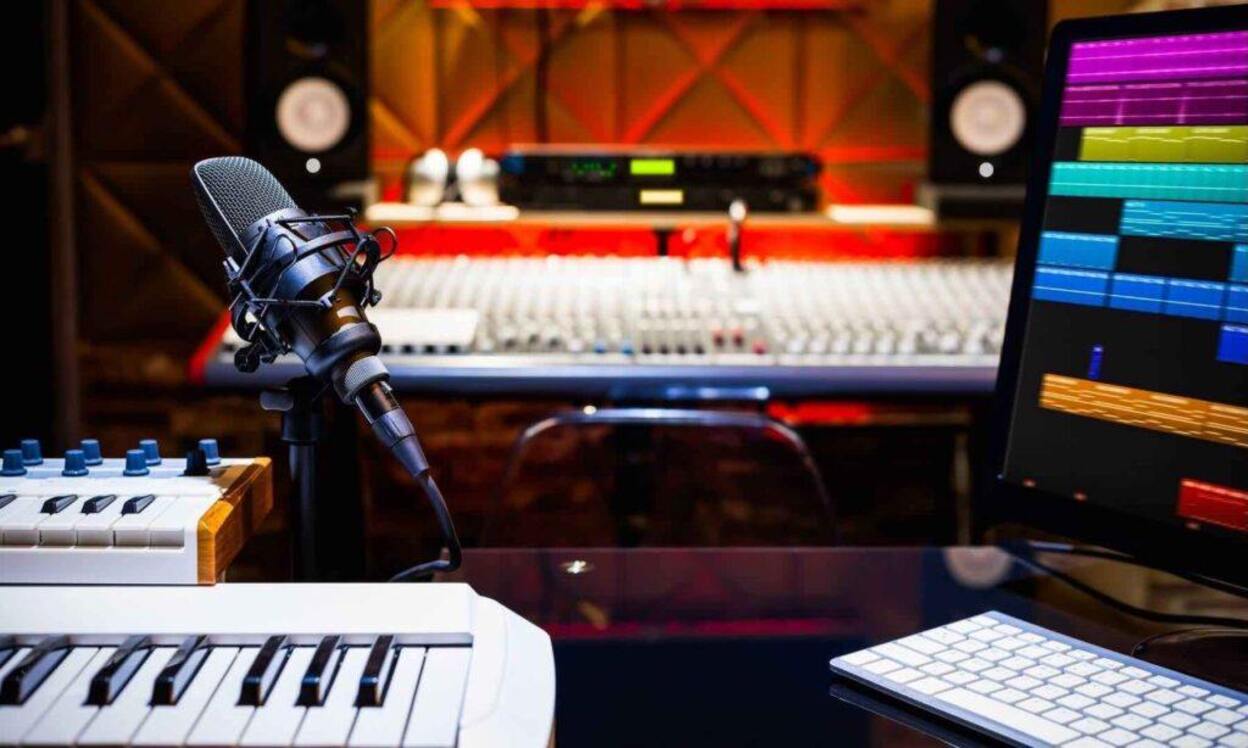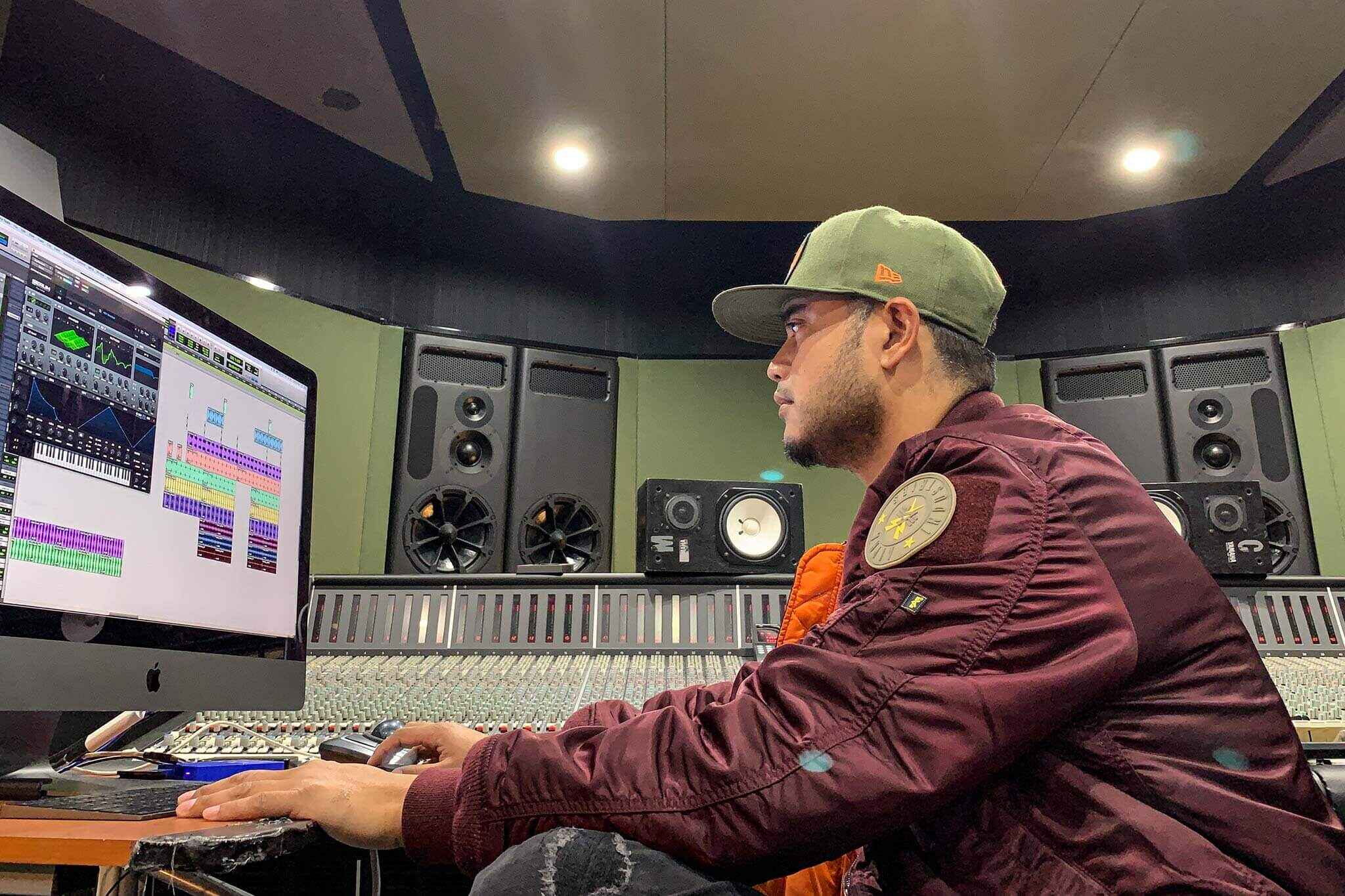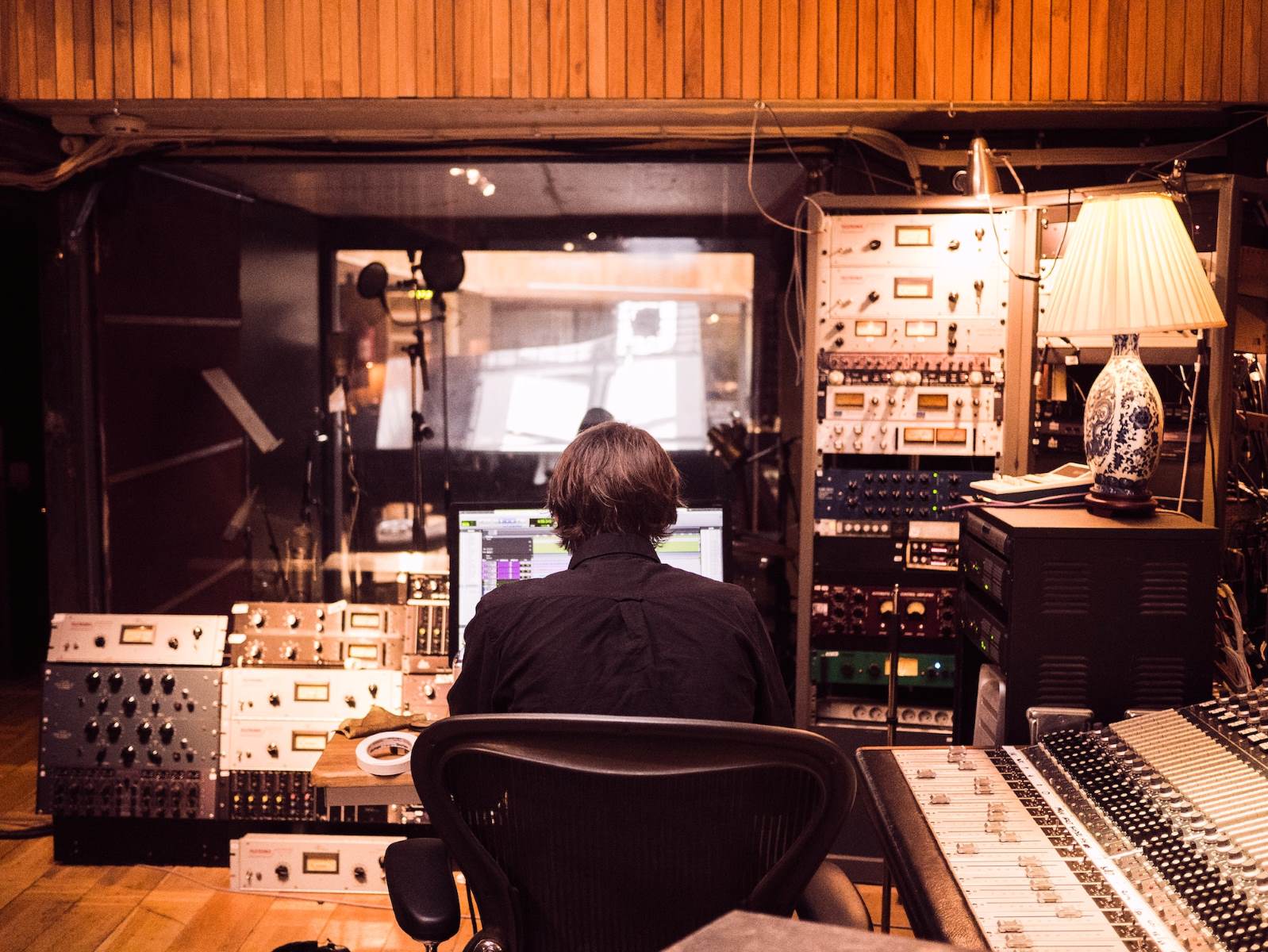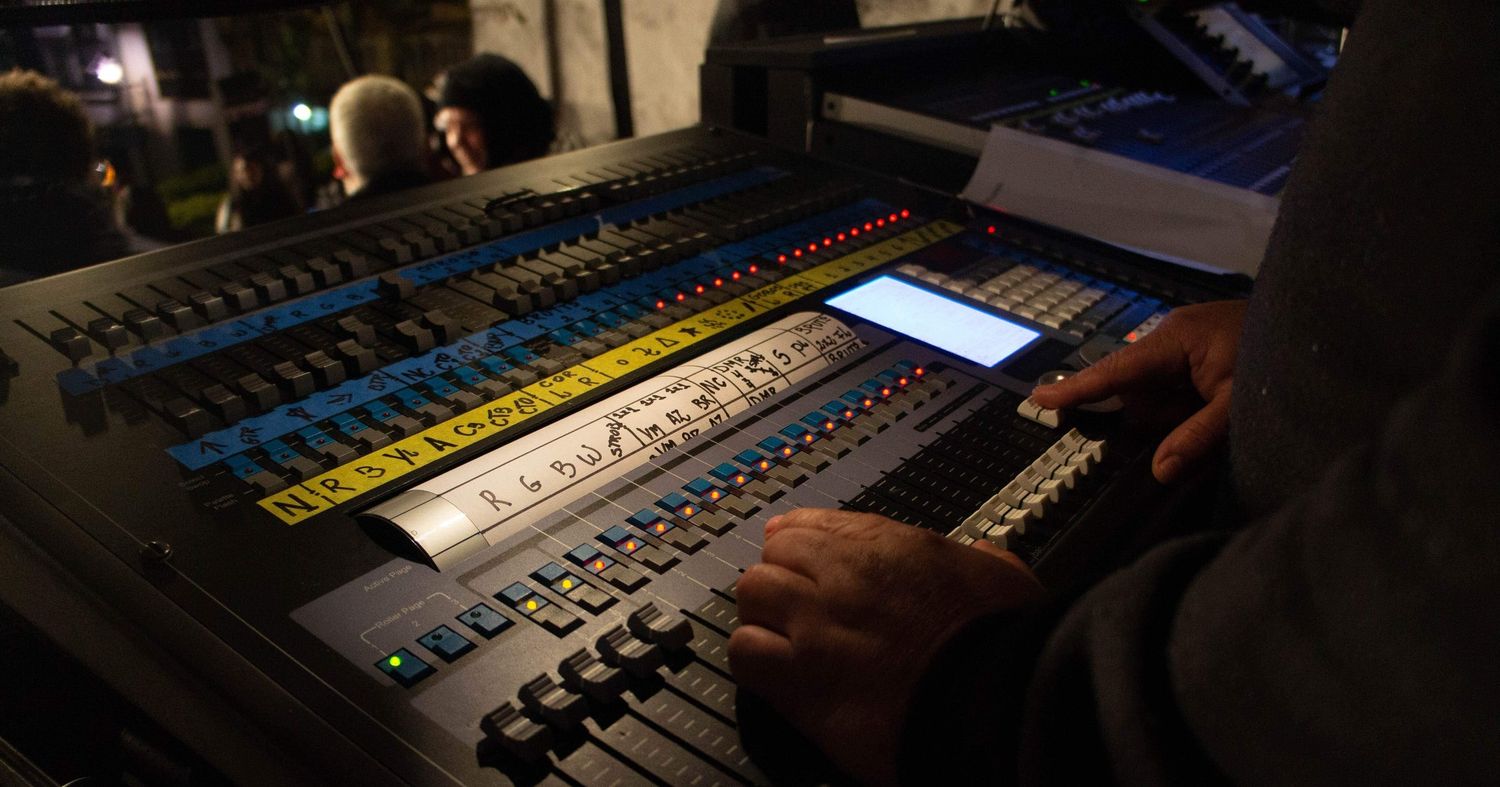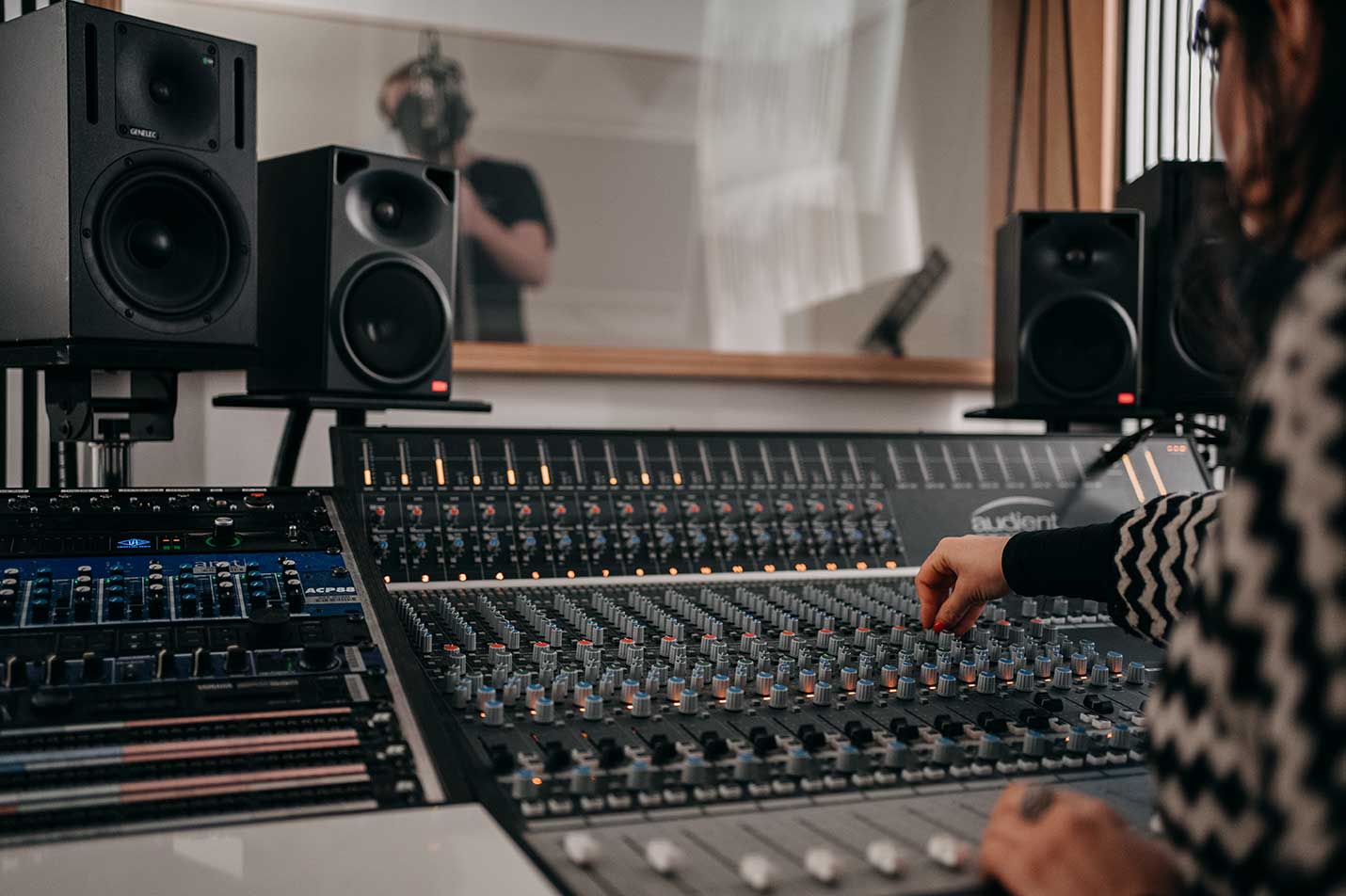Home>Production & Technology>Producer>How To Get A Job As A Music Producer
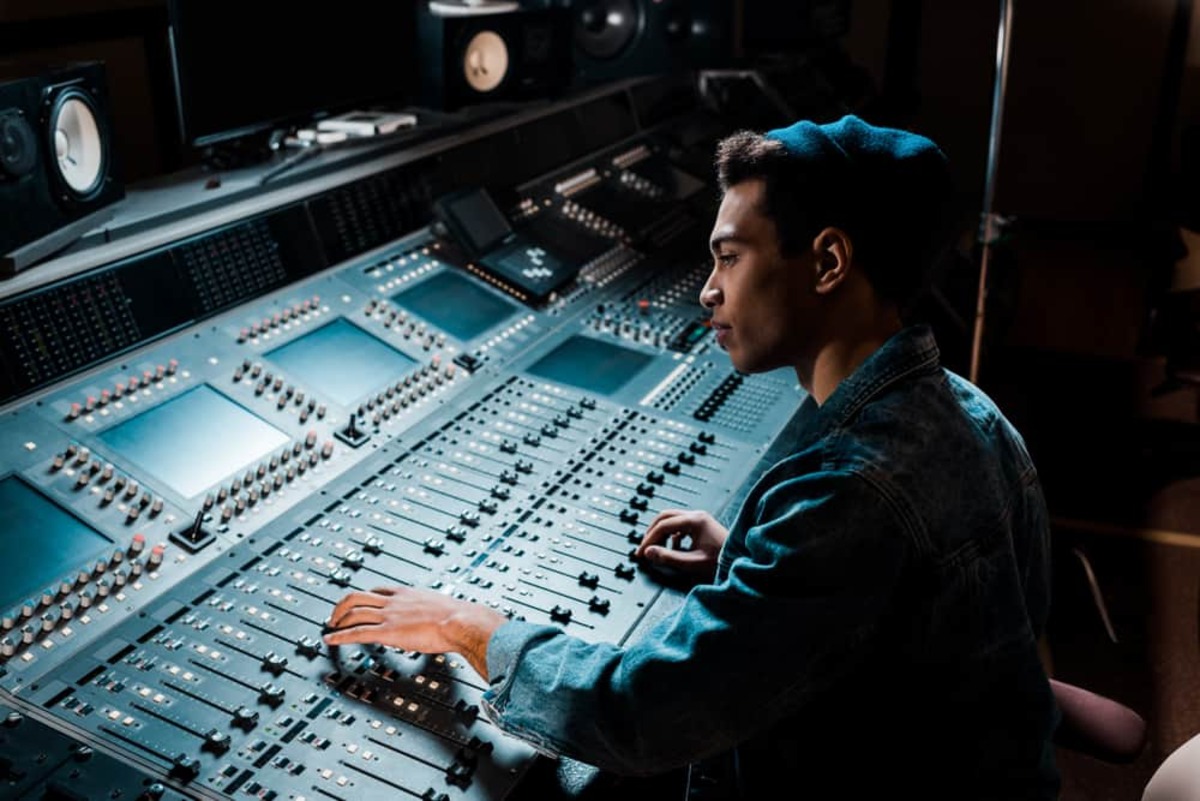

Producer
How To Get A Job As A Music Producer
Published: March 6, 2024
Learn how to land a job as a music producer with expert tips and advice. Discover the essential skills and steps to kickstart your career in music production.
(Many of the links in this article redirect to a specific reviewed product. Your purchase of these products through affiliate links helps to generate commission for AudioLover.com, at no extra cost. Learn more)
Table of Contents
Introduction
So, you're passionate about music and have a keen ear for sound. You may have spent countless hours in your bedroom studio, fine-tuning tracks, and experimenting with different sounds. But now, you're ready to take your love for music to the next level and turn it into a career. If you've ever wondered how to get a job as a music producer, you're in the right place.
Becoming a music producer is an exciting and rewarding journey that requires a unique blend of creativity, technical expertise, and industry know-how. As a music producer, you play a pivotal role in shaping the sonic landscape of songs and albums, working closely with artists to bring their musical vision to life. Whether you dream of producing chart-topping hits, crafting experimental soundscapes, or overseeing live recordings, the path to a successful career as a music producer is filled with opportunities for growth and artistic expression.
In this comprehensive guide, we'll delve into the intricacies of the music production industry and provide you with valuable insights on how to kickstart your journey toward landing a job as a music producer. From honing your technical skills and building a standout portfolio to navigating the competitive job market and acing interviews, we'll cover all the essential steps to help you pave the way for a fulfilling career in music production.
So, if you're ready to dive into the world of music production and embark on an exhilarating career path where creativity knows no bounds, let's explore the multifaceted realm of music production and equip you with the knowledge and tools to make your mark as a music producer. Let's get started!
Understanding the Role of a Music Producer
Aspiring music producers often find themselves drawn to the allure of creating captivating sounds and shaping the sonic identity of musical compositions. However, to truly excel in this dynamic field, it's essential to gain a comprehensive understanding of the multifaceted role of a music producer.
At its core, the role of a music producer extends far beyond simply pressing record buttons and adjusting sound levels. A music producer serves as a creative visionary and a critical collaborator in the music-making process. From conceptualizing the overall sound of a project to guiding artists through the recording, mixing, and mastering stages, a music producer's influence is omnipresent, leaving an indelible mark on the final product.
One of the primary responsibilities of a music producer is to translate the artist's vision into a tangible sonic experience. This involves working closely with musicians to understand their artistic goals, musical preferences, and desired emotional impact. Whether it's infusing a track with a raw, gritty edge or orchestrating lush, symphonic arrangements, the music producer's role is to breathe life into the artist's creative vision.
Moreover, a music producer must possess a keen understanding of music theory, arrangement, and instrumentation. This knowledge enables them to provide valuable input on song structures, chord progressions, and instrumental choices, thereby elevating the musical composition to new heights.
In addition to the creative aspects, a music producer also acts as a technical maestro, overseeing the recording and engineering processes to ensure the highest quality sound production. This involves harnessing the power of cutting-edge recording equipment, software, and studio acoustics to capture pristine audio recordings and create a cohesive sonic tapestry.
Furthermore, a music producer must exhibit strong leadership and communication skills, as they often collaborate with a diverse array of artists, songwriters, and audio engineers. Cultivating a harmonious and productive working environment is paramount to fostering creativity and bringing out the best in the musical talents involved.
In essence, the role of a music producer is a delicate balancing act that merges artistic ingenuity with technical prowess. By understanding the multifaceted nature of this role, aspiring music producers can embark on their journey with a clear vision of the skills and expertise required to thrive in this exhilarating field.
Developing Your Skills and Knowledge
Embarking on the path to becoming a proficient music producer entails a continuous commitment to honing your craft and expanding your knowledge base. Here's a comprehensive roadmap to help you develop the essential skills and expertise required to thrive in the competitive realm of music production.
1. Mastering Music Production Software
Familiarize yourself with industry-standard digital audio workstations (DAWs) such as Ableton Live, Pro Tools, Logic Pro, and FL Studio. Delve into the intricacies of these powerful software tools, learning to navigate their features for recording, editing, mixing, and mastering audio tracks.
2. Understanding Music Theory and Composition
Acquire a solid foundation in music theory, including scales, chords, and harmonic progressions. This knowledge will empower you to make informed decisions when arranging musical elements and crafting compelling melodies and harmonies.
3. Developing Sound Design Skills
Explore the art of sound design, delving into the manipulation of audio elements to create unique and evocative sonic textures. Experiment with synthesizers, samplers, and audio effects to sculpt sounds that resonate with emotion and creativity.
4. Studying Audio Engineering Principles
Gain a deep understanding of audio engineering concepts, including signal flow, microphone techniques, and acoustics. Familiarize yourself with recording studio setups and learn to capture high-quality audio recordings in diverse environments.
5. Cultivating Mixing and Mastering Expertise
Dive into the nuances of mixing and mastering, mastering the art of balancing individual tracks, applying audio effects, and achieving a polished, professional sound. Develop a discerning ear for sonic details and nuances, refining your skills to deliver exceptional audio quality.
6. Embracing Collaboration and Communication
Sharpen your interpersonal skills and cultivate effective communication with artists, musicians, and audio professionals. Building strong collaborative relationships is pivotal in the music production landscape, fostering a conducive environment for creative expression and artistic synergy.
7. Staying Abreast of Industry Trends
Stay attuned to the latest developments in music production, from emerging technologies to evolving sound aesthetics. Embrace a mindset of continuous learning and adaptation, positioning yourself at the forefront of industry innovations.
By immersing yourself in this multifaceted journey of skill development and knowledge acquisition, you'll fortify your foundation as a music producer, equipping yourself with the expertise and acumen to navigate the ever-evolving landscape of music production with confidence and creativity.
Building Your Portfolio
Crafting a compelling portfolio is a pivotal step towards establishing your credibility and showcasing your prowess as a music producer. Your portfolio serves as a tangible testament to your creative vision, technical proficiency, and collaborative achievements in the realm of music production. Here's a comprehensive guide on how to build a standout portfolio that resonates with potential employers and collaborators.
1. Curating Diverse Projects
Diversify your portfolio by including a range of projects that highlight your versatility and adaptability as a music producer. Incorporate tracks spanning various genres, moods, and production styles, demonstrating your ability to navigate diverse musical landscapes with finesse and innovation. Whether it's crafting infectious pop anthems, atmospheric electronic compositions, or soul-stirring orchestral arrangements, showcasing a breadth of musical diversity amplifies your appeal to a wide spectrum of potential clients and collaborators.
2. Showcasing Collaborative Works
Highlight your collaborative endeavors by featuring projects where you've collaborated with artists, songwriters, and fellow music professionals. Emphasize your role in guiding and enhancing the creative vision of the artists, underscoring your ability to forge synergistic partnerships and elevate the sonic identity of musical compositions through seamless collaboration. Additionally, incorporating testimonials or endorsements from artists and industry professionals can further reinforce the impact of your collaborative contributions.
3. Demonstrating Technical Prowess
Incorporate samples of your technical expertise by showcasing your proficiency in audio engineering, sound design, mixing, and mastering. Include before-and-after audio snippets to illustrate your adeptness in transforming raw recordings into polished, sonically captivating masterpieces. Providing insights into your workflow, production techniques, and the creative rationale behind your decisions can offer a compelling glimpse into your technical acumen and artistic sensibilities.
4. Documenting Professional Achievements
Document your professional achievements, such as accolades, chart placements, or notable projects, within your portfolio. Highlighting your track record of success and industry recognition bolsters your credibility and positions you as a music producer with a proven track record of delivering exceptional results. Additionally, incorporating visual elements such as album artwork, studio session photos, or behind-the-scenes footage can imbue your portfolio with a captivating visual narrative, further enhancing its appeal.
5. Emphasizing Growth and Evolution
Demonstrate your growth and evolution as a music producer by including early works alongside recent projects. Showcasing your progression, experimentation with new techniques, and adaptation to evolving industry trends underscores your commitment to continuous improvement and innovation. This juxtaposition of past and present endeavors provides a compelling narrative of your artistic journey, revealing the depth of your creative evolution and adaptability.
By meticulously curating a portfolio that encapsulates your artistic prowess, collaborative spirit, and technical finesse, you'll present potential employers and collaborators with a compelling showcase of your capabilities as a music producer. A well-crafted portfolio not only serves as a testament to your talent but also as a powerful tool to captivate industry professionals and open doors to exciting opportunities in the dynamic world of music production.
Networking in the Music Industry
Networking serves as a cornerstone of success in the music industry, offering a gateway to invaluable connections, collaborative opportunities, and professional growth. Aspiring music producers can harness the power of networking to forge meaningful relationships, gain industry insights, and expand their sphere of influence within the dynamic realm of music production.
1. Industry Events and Conferences
Attending industry events, music festivals, and conferences presents a fertile ground for networking within the music industry. These gatherings offer opportunities to connect with artists, record label executives, music publishers, and fellow music producers. Engaging in meaningful conversations, exchanging ideas, and showcasing your portfolio at such events can lay the groundwork for lasting professional relationships and collaborative ventures.
2. Online Communities and Forums
Participating in online music production communities, forums, and social media groups provides a virtual platform to connect with a global network of music professionals. Engage in discussions, share your insights, and seek collaborative opportunities within these digital spaces. Platforms such as LinkedIn, SoundBetter, and industry-specific forums offer avenues to expand your network and stay abreast of industry trends and opportunities.
3. Music Industry Workshops and Seminars
Enrolling in music production workshops, seminars, and masterclasses presents an immersive networking environment where you can interact with industry veterans, seasoned producers, and emerging talents. These educational forums not only offer valuable learning experiences but also serve as fertile ground for cultivating meaningful connections and garnering mentorship from established figures in the music production landscape.
4. Collaborative Projects and Co-Writing Sessions
Engaging in collaborative music projects, co-writing sessions, and production collaborations provides an organic avenue for networking within the music industry. Partnering with artists, songwriters, and fellow music producers not only fosters creative synergy but also expands your professional circle, opening doors to new opportunities and collaborative ventures.
5. Industry Mixers and Networking Events
Attending industry mixers, networking events, and studio open houses offers an informal yet potent avenue for connecting with industry professionals and fellow music enthusiasts. These gatherings provide a relaxed setting to engage in meaningful conversations, exchange contact information, and lay the groundwork for potential collaborations and career opportunities.
By actively engaging in these networking avenues, music producers can cultivate a robust professional network, fostering collaborations, mentorship opportunities, and industry insights that can propel their careers to new heights within the vibrant and ever-evolving music industry.
Applying for Music Producer Jobs
When it comes to applying for music producer jobs, a strategic and targeted approach can significantly enhance your prospects in the competitive music industry. Here's a comprehensive guide to navigating the job application process and positioning yourself as a standout candidate for music producer roles.
1. Crafting a Compelling Resume
Your resume serves as your professional calling card, showcasing your skills, experience, and achievements as a music producer. Tailor your resume to highlight relevant skills such as music production software proficiency, sound engineering expertise, and collaborative projects. Additionally, emphasize any notable industry accolades, certifications, or specialized training that demonstrate your commitment to excellence in music production.
2. Building a Dynamic Cover Letter
Craft a compelling cover letter that articulates your passion for music production and aligns your skills with the specific requirements of the job. Personalize each cover letter to reflect your understanding of the company or studio's ethos, recent projects, and how your contributions can elevate their creative endeavors. A well-crafted cover letter can convey your enthusiasm and set you apart from other applicants.
3. Showcasing Your Portfolio
Incorporate a link to your online portfolio or a selection of your work samples within your application. Whether it's original compositions, collaborative projects, or audio engineering showcases, your portfolio provides tangible evidence of your creative vision and technical prowess. A visually engaging and well-organized portfolio can captivate potential employers and offer a compelling glimpse into your music production expertise.
4. Researching Prospective Employers
Conduct thorough research on the companies, studios, or production houses you're applying to. Familiarize yourself with their past projects, musical genres they specialize in, and their overall artistic direction. Tailoring your application to resonate with the specific ethos and creative vision of the prospective employer demonstrates your keen interest and proactive approach to aligning with their artistic endeavors.
5. Leveraging Industry Connections
Utilize your professional network and industry connections to gain insights into potential job openings and recommendations. Engage with fellow music producers, artists, and industry professionals to uncover hidden opportunities and gain referrals that can bolster your application's visibility. Networking within the music industry can often unveil unadvertised job openings and enhance your chances of securing interviews.
6. Tailoring Your Application Materials
Customize your application materials, including your resume, cover letter, and portfolio, to align with the job requirements and the specific nuances of each role. Highlight relevant experiences, technical proficiencies, and collaborative successes that directly resonate with the job description. Tailoring your application demonstrates your attentiveness to detail and your ability to meet the unique demands of the role.
By meticulously crafting your application materials, conducting thorough research, and leveraging your professional network, you can position yourself as a compelling candidate for music producer jobs. A proactive and strategic approach to the application process can amplify your visibility and resonate with potential employers, paving the way for exciting opportunities in the dynamic realm of music production.
Preparing for Interviews
Preparing for interviews is a pivotal phase in the journey toward securing a music producer position. It's a moment to showcase your expertise, passion for music, and ability to thrive in the dynamic landscape of music production. Here's a detailed guide to help you navigate the interview preparation process with confidence and finesse.
Researching the Employer
Before the interview, delve deep into the background of the prospective employer. Familiarize yourself with their notable projects, artistic direction, and the genres they specialize in. Understanding their creative ethos and past accomplishments will enable you to articulate how your skills and artistic sensibilities align with their vision.
Showcasing Your Portfolio
Prepare a visually engaging and comprehensive portfolio that encapsulates your diverse musical projects, collaborative works, and technical prowess. Select key pieces that exemplify your versatility, innovation, and ability to elevate musical compositions. Your portfolio serves as a powerful visual aid to articulate your creative vision and technical acumen during the interview.
Rehearsing Your Responses
Anticipate common interview questions and rehearse your responses to articulate your musical influences, production techniques, and collaborative experiences. Be prepared to discuss specific projects, challenges you've overcome, and the creative decisions you've made. Additionally, practice articulating your unique value proposition as a music producer and how your expertise can contribute to the prospective employer's creative endeavors.
Demonstrating Technical Proficiency
Be ready to showcase your technical expertise during the interview. Whether it's discussing your proficiency with industry-standard DAWs, your approach to sound design, or your mixing and mastering techniques, demonstrating your technical prowess can instill confidence in potential employers regarding your ability to deliver exceptional sonic experiences.
Communicating Your Collaborative Skills
Highlight your collaborative strengths and effective communication skills. Share anecdotes of successful collaborations, instances where you've navigated creative differences, and your approach to fostering a harmonious working environment. Emphasize your ability to understand and amplify the artistic visions of musicians, underscoring your role as a pivotal collaborator in the music-making process.
Expressing Your Passion for Music
Infuse your responses with genuine passion and enthusiasm for music production. Communicate your deep-seated love for music, your commitment to continuous learning and growth, and your unwavering dedication to creating captivating sonic experiences. Let your genuine passion shine through, leaving a lasting impression on the interviewers.
By meticulously preparing for interviews, you can position yourself as a compelling and confident candidate for music producer roles. A well-prepared interview approach not only showcases your expertise but also conveys your dedication to the art of music production and your readiness to make a meaningful impact within the industry.
Conclusion
Embarking on the journey to become a music producer is a thrilling odyssey that demands a harmonious blend of creativity, technical prowess, and industry acumen. Throughout this comprehensive guide, we've delved into the multifaceted realm of music production, equipping aspiring music producers with the knowledge, skills, and strategic insights to navigate the competitive landscape of the music industry.
As you traverse the path toward a career in music production, it's essential to embrace a mindset of continuous learning, experimentation, and adaptation. The dynamic nature of the music industry calls for a proactive approach to skill development, staying abreast of industry trends, and nurturing a robust professional network. By honing your technical expertise, cultivating collaborative skills, and showcasing your artistic vision through a compelling portfolio, you can position yourself as a formidable contender in the world of music production.
Moreover, the art of networking and strategic job application approaches can open doors to exciting opportunities, allowing you to forge meaningful connections, gain industry insights, and secure interviews with potential employers. Preparing for interviews with meticulous attention to detail, showcasing your portfolio, and articulating your passion for music production can set the stage for impactful conversations that resonate with prospective employers.
As you embark on this exhilarating journey, remember that the role of a music producer transcends the mere creation of sound; it is a profound collaboration between art and technology, a symphony of creativity and precision. Embrace the challenges, celebrate your successes, and remain steadfast in your commitment to crafting sonic experiences that captivate and inspire.
Ultimately, the world of music production is a vibrant tapestry of innovation, collaboration, and boundless creativity. It's a realm where artistic expression knows no bounds, and where the transformative power of sound can transcend barriers and stir the depths of human emotion. So, as you venture forth into this wondrous realm, may your passion for music production be the guiding force that propels you toward a fulfilling and impactful career in shaping the sonic landscapes of tomorrow. Embrace the journey, and let your creative spirit soar.
In closing, remember that the path to becoming a music producer is not merely about securing a job; it's about embarking on a lifelong odyssey of artistic exploration, technical mastery, and unwavering dedication to the art of music production. With your unique blend of creativity, technical acumen, and collaborative spirit, you are poised to make an indelible mark in the ever-evolving symphony of music production. So, go forth, immerse yourself in the world of sound, and let your passion illuminate the path toward a vibrant and fulfilling career as a music producer.

